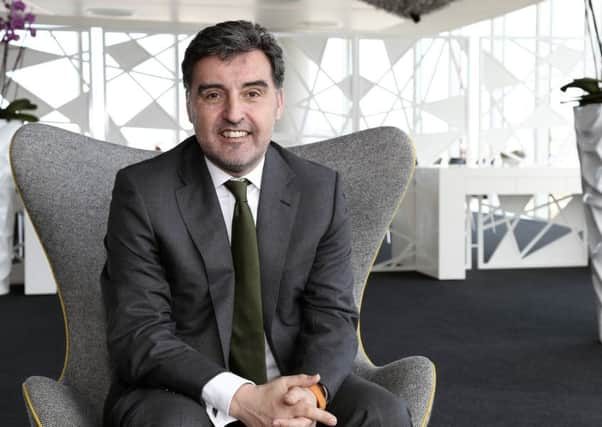Yorkshire’s cities should learn from Boston and Barcelona, says top economist


Mark Gregory, chief economist at accountancy firm EY, said the world’s great cities have succeeded through differentiation and specialisation.
Speaking during a visit to Yorkshire, he said Boston has used its strengths in education - it is home to Harvard and the Massachussetts Institute of Technology - to develop expertise in healthcare innovation.
Advertisement
Hide AdAdvertisement
Hide AdIt has also created a strong cultural scene, helped by major development of the city’s waterfront, added Mr Gregory.
He rates Barcelona as an up-and-coming city, which has risen up through the rankings in attractiveness to international investors and people’s perceptions.
“There are elements of lifestyle with a beach and a football team, it has become a big tourist destination, the infrastructure is in place and it has businesses and great communications,” said Mr Gregory.
Great cities are differentiated, specialised and integrated with good housing and schools, he said, and “it requires a degree of coordination and vision to make that happen”.
Advertisement
Hide AdAdvertisement
Hide AdMr Gregory made the comments after a forum for business leaders interested in the Northern Powerhouse debate hosted by EY at Bowcliffe Hall near Wetherby.
Cities, towns and counties across the UK have submitted 38 proposals for devolved power from Whitehall, including five from Yorkshire.
The process to prepare the region’s bids was so marred with politics and in-fighting that off-camera comments from the Prime Minister about people in Yorkshire “hating” each other took on special resonance.
Asked about the state of the regional economy, Mr Gregory said Yorkshire mirrors the UK economy more closely than any other region with its mix of financial and professional services and manufacturing.
Advertisement
Hide AdAdvertisement
Hide AdIn one way, this is an advantage, but it may also make it harder for the region to specialise and differentiate itself, unlike Manchester which has a strong focal point, he added.
Mr Gregory said Yorkshire had a good year for foreign direct investment in 2014 and its financial and professional services sectors are acting as a “kicker” to the economy at the moment.
But he warned that the region’s disproportionately large retail sector - which has been shedding jobs for the last two years - is exposed to the impact from the Government’s new National Living Wage, which comes into effect from next April.
Mr Gregory said this might not be an issue for successful and efficient retailers, but others may use more technology in an effort to cut costs, which would lead to job losses.
Advertisement
Hide AdAdvertisement
Hide AdThe big economic story of the week was the US Federal Reserve’s decision to maintain interest rates confounding expectations that they would rise. Mr Gregory said this was a “balanced and cautious” move, mindful of the impact that a rate hike could have on emerging markets.
Role for universities
Mark Gregory highlighted the role that universities can play in supporting the region’s industries.
He argued that Yorkshire should focus on the sectors that will create higher value jobs, such as technology-enabled manufacturing.
Mr Gregory said: “If you have the right tech skills, you have the manufacturing base here then there ought to be opportunities in that space.
Advertisement
Hide AdAdvertisement
Hide Ad“The key things in some of the cities here are the universities and the education system and trying to work with industry be it to create research centres that make manufacturers aware of what there is, developing the skills and trying to keep the graduates in the city, which is a two-way thing .
“If you have got the businesses there are the opportunities for graduates.”
Mr Gregory joined EY a decade ago after roles at IBM and PwC.